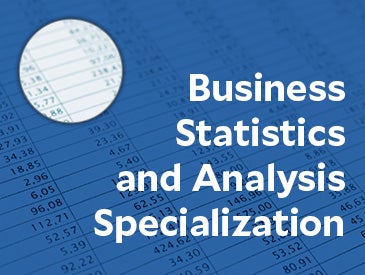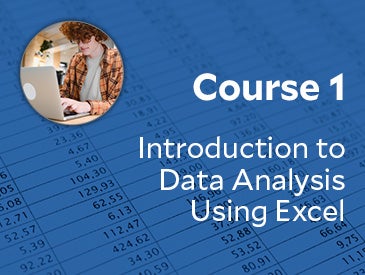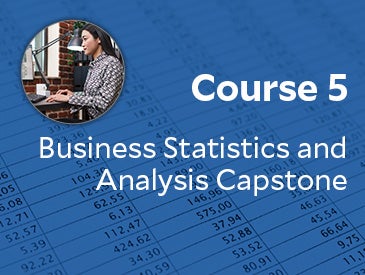Linear Regression for Business Statistics (Course 4)
Regression analysis is perhaps the single most important business statistics tool used in the industry. It is the engine behind a multitude of data analytics applications used for forecasting and prediction.
In this fourth course of the Business Statistics and Analysis specialization, we will discuss common applications of linear regression in business. The focus of the course is on understanding and application, rather than detailed mathematical derivations, and all the concepts will be explained using easy-to-understand examples in Microsoft Excel.
Who should attend:
- Data analysts, business analysts, statisticians, or market researchers looking to refresh or upskill in Excel and applied business statistics methods
- Early- or mid-career professionals looking to build foundational data analysis skills using Microsoft Excel or Google Sheets (tools easily accessible within business environments)
- High school or college math students interesting in exploring potential career options and practical business scenarios
- Prospective MBA students looking to get prepared before starting Business School
You will be able to:
- Build a linear regression model and estimate it using Excel
- Make inferences and predictions using the regression model
- Understand various techniques surrounding regression models such as mean centering of variables and confidence bounds for predictions
LECTURE SAMPLES
MEET YOUR RICE PROFESSOR

Sharad Borle
Sharad Borle has been a marketing professor with Rice University since 2003. He received an M.S. and Ph.D. in marketing from Carnegie Mellon University, an MBA from XLRI Institute of Management in India, and a B.Tech in electronics engineering from Banaras Hindu University also in India. Prior to his academic career Professor Borle worked in India in the Department for International Development, Suzuki Motor Corporation and Network Limited.
Explore our related Business Analytics Courses

Basic Data Descriptors, Statistical Distributions and Application to Business Decisions (Course 2)
LEARN MORE
Business Applications of Hypothesis Testing and Confidence Interval Estimation (Course 3)
LEARN MORECONTACT
Any questions? Please e-mail RiceOnline@rice.edu
CONTACT
Any questions? Please e-mail RiceOnline@rice.edu






